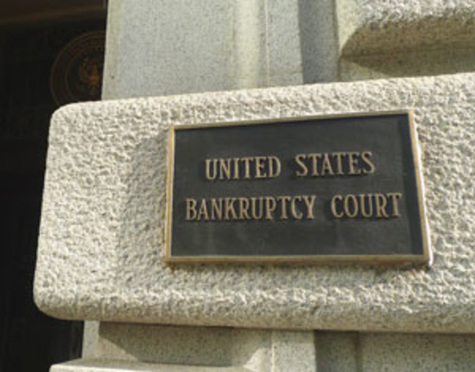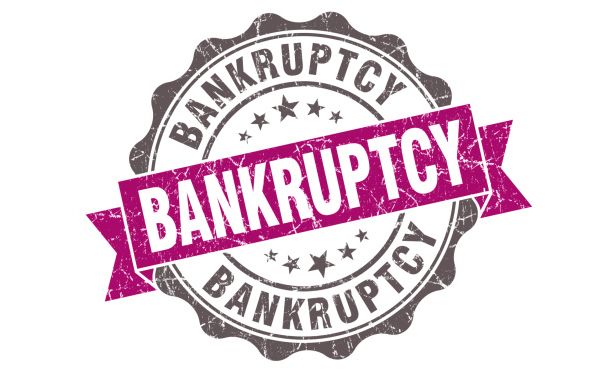Catherine B Heitzenrater

March 28, 2022 | The Legal Intelligencer
Debtors' Limited Financial Ties to US Sufficient to Satisfy Eligibility Requirements Under Section 109In the face of financial distress, or a creditor exercising its remedies against a company's assets, there are significant benefits to filing a Chapter 11 case under the U.S. Bankruptcy Code regardless of where in the world the debtor company is headquartered or conducts its business.
By Catherine B. Heitzenrater
6 minute read

November 15, 2018 | The Legal Intelligencer
Inherited IRAs Not Exempt From Bankruptcy Estate Under New York LawIn a matter of first impression, the U.S. Bankruptcy Court for the Northern District of New York recently analyzed whether a debtor may exempt from her bankruptcy estate a retirement account that was bequeathed to her upon the death of her parent.
By Rudolph J. Di Massa, Jr. and Catherine B. Heitzenrater
7 minute read

May 24, 2018 | The Legal Intelligencer
Prepetition Setoff Not an 'Improvement in Position' Under Bankruptcy CodeIn a recent decision out of the United States Bankruptcy Court for the Western District of Virginia, a court analyzed the effect of a setoff effectuated between two governmental units in the 90 days prior to the filing of a husband and wife's bankruptcy case.
By Rudolph J. Di Massa Jr. and Catherine B. Heitzenrater
8 minute read

November 16, 2017 | The Legal Intelligencer
Sovereign Immunity in Bankruptcy Cases: Can a Trustee Sue the State?Typically, a state governmental entity is immune from suit unless the state explicitly waives its own sovereign immunity with respect to a particular claim or issue.
By Rudolph J. Di Massa, Jr. and Catherine B. Heitzenrater
12 minute read

August 17, 2017 | The Legal Intelligencer
The Liquidating Fiduciary Exception and Administrative StatusWhether a claimant is entitled to an administrative expense claim, or simply a prepetition claim, can mean the difference between full payment of the claim and the recovery of only pennies on the dollar. Accordingly, a significant amount of litigation in bankruptcy cases centers around the priority status to which certain claims are entitled. The U.S. Bankruptcy Court for the Northern District of Illinois has recently issued a decision granting priority status to claimants seeking damages for violation of the Worker Adjustment and Retraining Notification Act (the WARN Act). Given the significant liability that debtors could face under the WARN Act, this decision is relevant to all bankruptcy practitioners.
By Rudolph J. Di Massa Jr. and Catherine B. Heitzenrater
8 minute read

August 18, 2016 | The Legal Intelligencer
Post-Petition Interest in a Solvent Case: What Interest Rate Controls?In today's low interest rate environment, the difference between a contractual interest rate and the federal judgment rate can be quite significant. It is not surprising, therefore, that this issue has become hotly litigated in cases involving solvent Chapter 11 debtors.
By Rudolph J. Di Massa Jr., Lawrence J. Kotler and Catherine B. Heitzenrater
14 minute read

February 17, 2016 | The Legal Intelligencer
Extinguishment of Liens Through a Plan of ReorganizationOn Aug. 4, 2015, in City of Concord, New Hampshire v. Northern New England Telephone Operations LLC (In re Northern New England Telephone Operations LLC), No. 14-3381 (2nd Cir. Aug. 4, 2015), the U.S. Court of Appeals for the Second Circuit addressed the circumstances under which a creditor's lien on the property of a debtor may be extinguished through a Chapter 11 plan of reorganization. In explaining how liens must be "dealt with" pursuant to a plan in order to be extinguished thereby, the court employed a four-part test to determine whether a creditor's liens are extinguished, or whether they pass through the bankruptcy unaffected. This case provides important guidance for creditors on how best to protect their liens on a debtor's assets, given that the traditional rule—that liens pass through bankruptcy cases unaffected—has been modified by the U.S. Bankruptcy Code.
By Rudolph J. Di Massa Jr. and Catherine B. Heitzenrater
8 minute read

August 07, 2015 | The Legal Intelligencer
'Authority' to Terminate Financing Statements Under UCCOn Jan. 21, in Official Committee of Unsecured Creditors of Motors Liquidation v. JPMorgan Chase Bank (In re Motors Liquidation), No. 13-2187, (2d Cir. Jan. 21, 2015), the U.S. Court of Appeals for the Second Circuit addressed whether a UCC-3 termination statement, which was improperly filed as part of the repayment of an unrelated loan, may be considered effective to terminate the security interest in question, even where none of the parties intended that result.
By Rudolph J. Di Massa Jr. and Catherine B. Heitzenrater
9 minute read

August 07, 2015 | The Legal Intelligencer
'Authority' to Terminate Financing Statements Under UCCOn Jan. 21, in , No. 13-2187, (2d Cir. Jan. 21, 2015), the U.S. Court of Appeals for the Second Circuit addressed whether a UCC-3 termination statement, which was improperly filed as part of the repayment of an unrelated loan, may be considered effective to terminate the security interest in question, even where none of the parties intended that result.
By Rudolph J. Di Massa Jr. and Catherine B. Heitzenrater
9 minute read
Trending Stories
- 1'Knowledge of Mismatch:' Fed Judge Offers Guidance on How to Hold Banks Accountable for Erroneous Transfers
- 2PAGA Claims Must Now Be 'Headed'
- 3Million-Dollar Verdict: Broward Jury Sides With Small Business
- 4'Reluctant to Trust'?: NY Courts Continue to Grapple With Complexities of Jury Diversity
- 5'Careless Execution' of Presidential Pardons Freed Convicted Sex Trafficker, US Judge Laments



